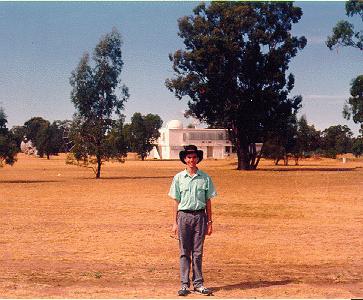This is Day Nineteen of winter wonderland, and the air in every house and car is filled with little hairs and fluff that start me coughing up a lung, and the occasional stomach lining. There is no ventilation in winter in the Northern Hemisphere. With the Super-Senses afforded to me by the curse of hyperacuity of my sense of touch, I can count every dog hair and fabric fragment as it hits my lungs going in, and sometimes out.
Hyperacuity is experiencing the removal of the normal filters that remove noise from the signals your brain porcesses from your raw senses. Its usually caused by psychotropic drugs, hypnotic states, or brain inflammation. I've opened the Doors Of Perception, as Huxley called this, with meditation in the past, but sadly its inflammation thats cursed me at random times in the past 12 months, and the Doors are open so wide that I can't get them shut to get some sleep.
I've visited a Canadian 24-hour clinic, so I've been able to compare standards of medical care with my Australian experience. The 90 minute wait wasn't bad for a Monday lunchtime in winter. My Canadian doctor was only able to handle one symptom for the visit, and his objective was to eliminate life-threatening pneumonia as a diagnosis, as quickly as possible and get me out of there so more desperate souls could receive his aid. I'm embarressing everyone with the secondary stomach problem that was caused by literally gut-wrenching, convulsive coughing on my return to the house in Toronto. My responsibility is to hope quietly that it will heal on its own. I would have been able to get an Australian doctor to at least check out the tender points, and get a baseline on whether I've done myself an injury in an already troubled region.
I have full travel insurance, so I can pay for proper medical care, but that doesn't matter. Emergency rooms at hospitals are for life-threatened people only, anyone else will be resented as betraying their civil duties, and be justly punished by unpleasant day-long waits. I'm not dying yet. This I have had explained to me, and this I understand.
I've also had explained to me that the Docs in the Clinic are understaffed and over-worked, and I've seen this. I'm told that Canadian residents do have access to doctors who could actually treat you like a person instead of a symptom, but that these doctors don't see people unless there's a guaranteed commitment to a long-term relationship. Sort of like an arranged marriage.
I should have stayed in Buffalo, and tried out what the US medical system would make of a guy who isn't dying, but can pay to see a doctor. I was certainly in a culture where I was welcome to express my distress, without people dismissing me as a drama queen. I made a bad decision. In my defence, I had all the signs of recovery until I hit the indoor air pollution. I felt like I was trying to breathe the atmosphere of a different planet and failing miserably. Not on Pluto anymore.
Deep exhaustion and oxygen-deprivation caused brain fog, and my ability to think narrowed sharply. Between gasps and full-body spasms, I was still able to clearly express myself in short, witty sentences, to a group of people who had no idea I'd been feverishly ill for four days already. After attempts to solve my oxygen problem with air cleaning machines, postural changes, and drinks of water, I was no longer able to think of a remedy for myself, and only wished for death to hurry up, already.
So I expressed blunt doubts about my survival, and someone was able to suggest stepping outside into the cold night air to escape the indoor air pollution. I wiped my running nose, coughed up the other lung, and put my jumper, snow-boots, jacket, scarf, gloves and touk (to stop my ears freezing), and ventured outsite. I was feeling very foolish I hadn't thought of this traditional Canadian respiratory infection remedy for myself. I risked being told once again how upside-down and topsy-turvey my Australian expectations are.
There is a ray of light from out of this cloud of misery and snow. I've been exposed to vaso-dilators. Much later in the evening when all the people with cars who could drive me to a Clinic had gone home, secure in the knowledge that I only needed a quick trip out into the cold but clean night air to be able to sleep; I was offered a hit of ventolin for my tortured lungs to help me survive the night. It affected my brain a *very good* way. Back in High School, I remember seeing non-asthmatic kids in high school getting high from ventolin puffs.
This is what happened: I heard a loud dizzying, ringing noise, and then my mind cleared.
This is wholly remarkable to someone who has suffered clouding of the brain by severe CFS or Fibromyalgia. To someone like me, who has suffered frequent attacks of mild aphasia and complete confusion, this is like going from reading by the light of a randomly flickering LED clock, to switching on the room lights. Result!
Two weeks ago I was reading the patient's gloss of Dr Jay Goldstein's "Betrayal By The Brain" about his clinical research into Chronic Fatigue Syndrome and Fibromyalgia. He talks about there being brain systems going wrong that are helped by vaso-constricting drugs, and other brain system problems that are helped by vaso-dilators. A bronchial-dilator like ventolin is a vasodilator. I took my prescription bronchitis inhalor tonight, and I didn't experience the ringing in the ears, or get quite so quick an effect. However, what an effect! Not only does it help control my coughing and wheezing, but I've just written a book review, and a rather sizeable blog entry. I've only been prescribed a two week supply. My memory problems seem to remain unhelped, but my concentration and articulation are improved. Memory may simply take longer treatment.
I'll be reading Goldstein's book to see what else he suggests for people who respond the way I have, and planning to get some vasodilation drugs that work a little more long-term on my return to Sydney.
 right click and choose 'save as' to download MP3
right click and choose 'save as' to download MP3




















 <
<
 When the speech centres of your brain don't work as well as they used to - Dysphasia or "mild aphasia" explained.
When the speech centres of your brain don't work as well as they used to - Dysphasia or "mild aphasia" explained.



Recent Comments